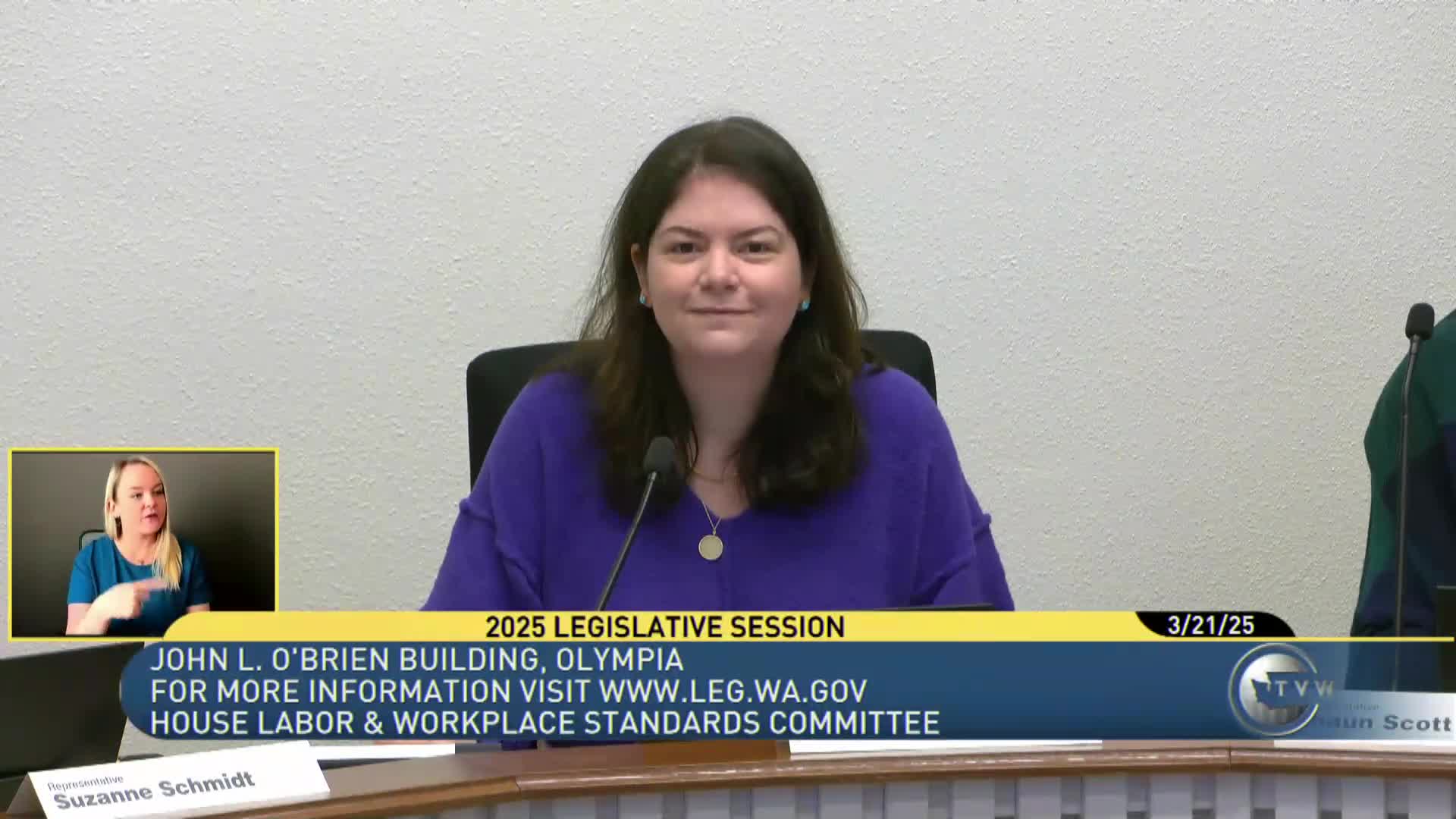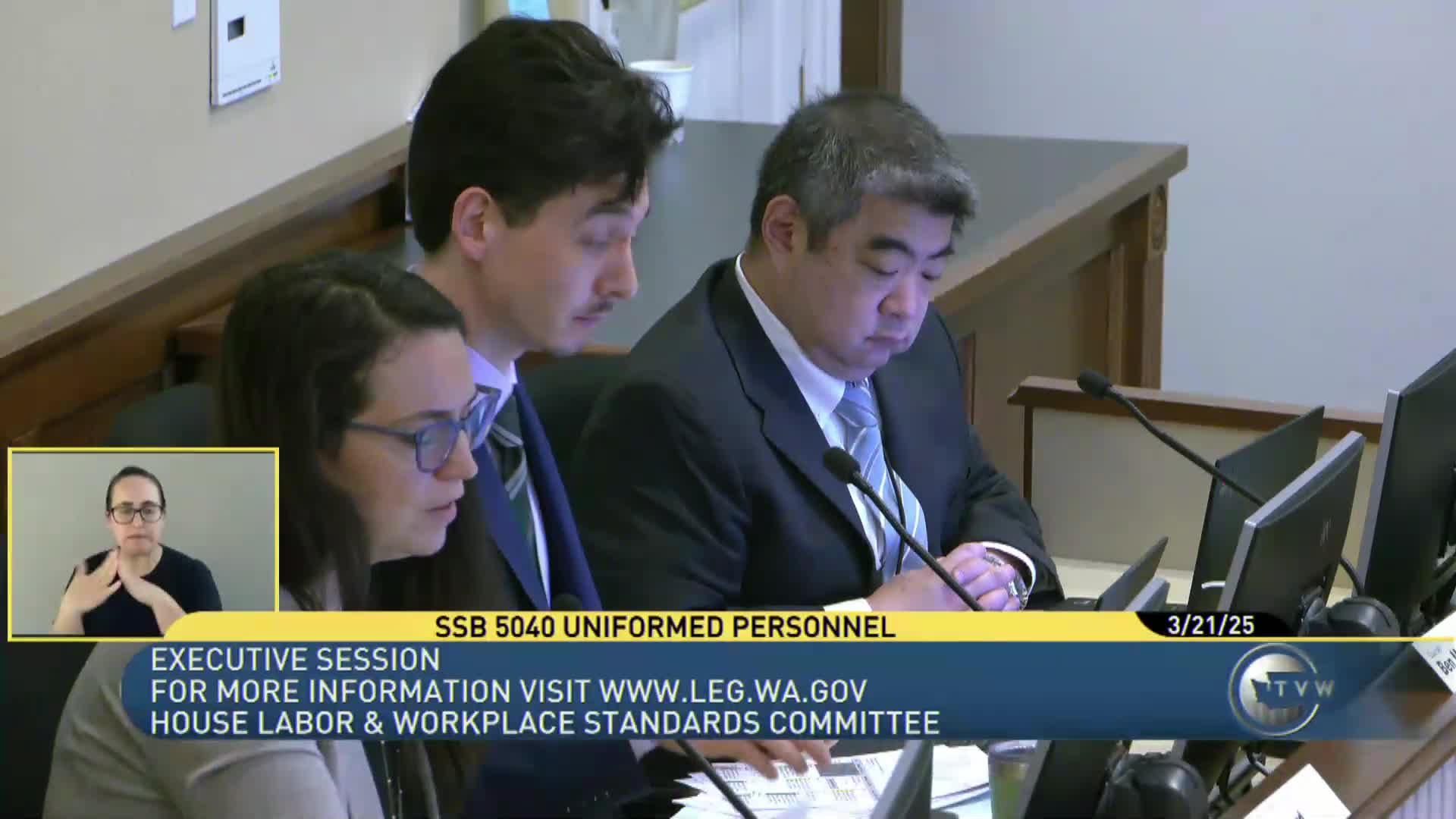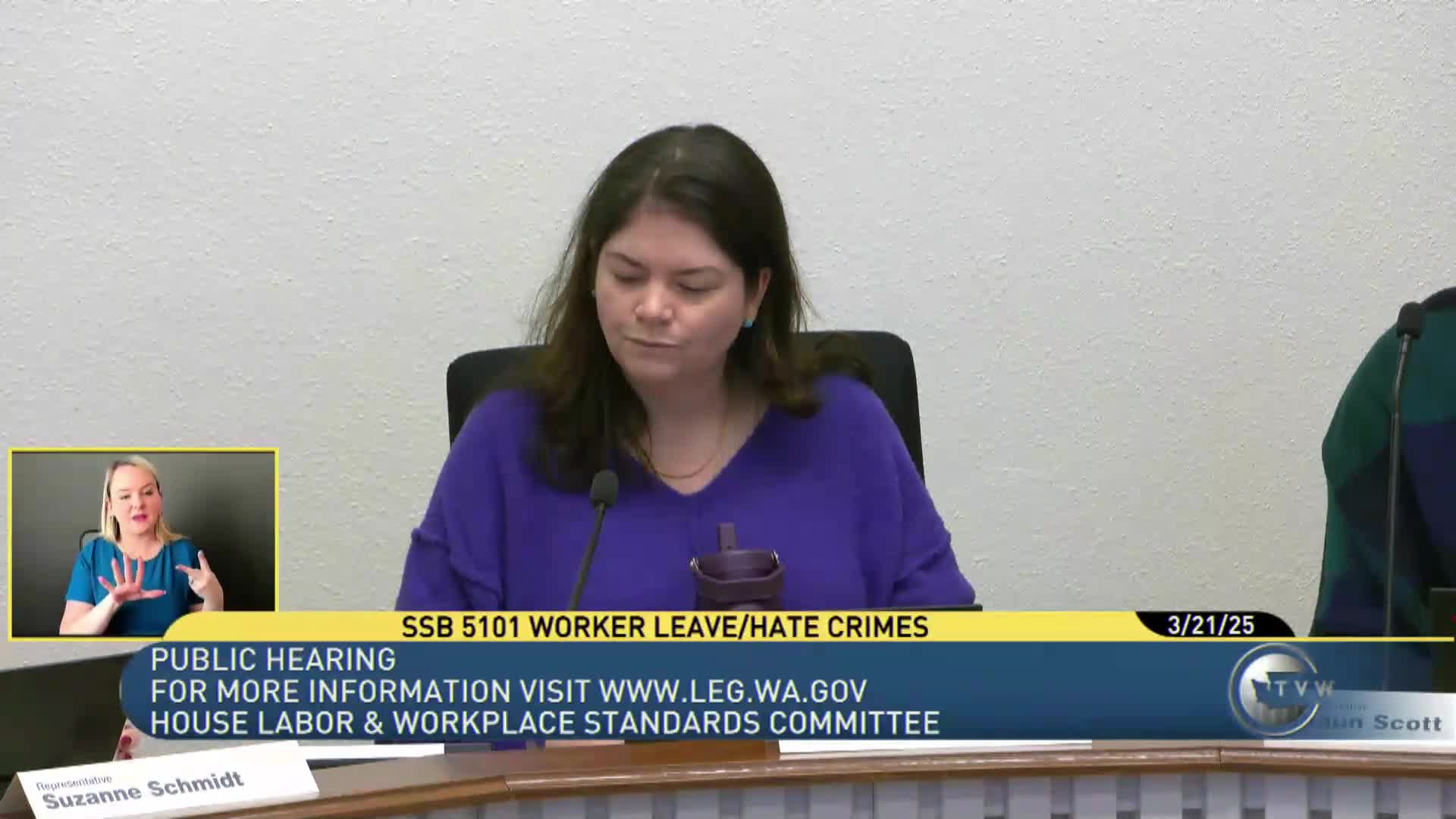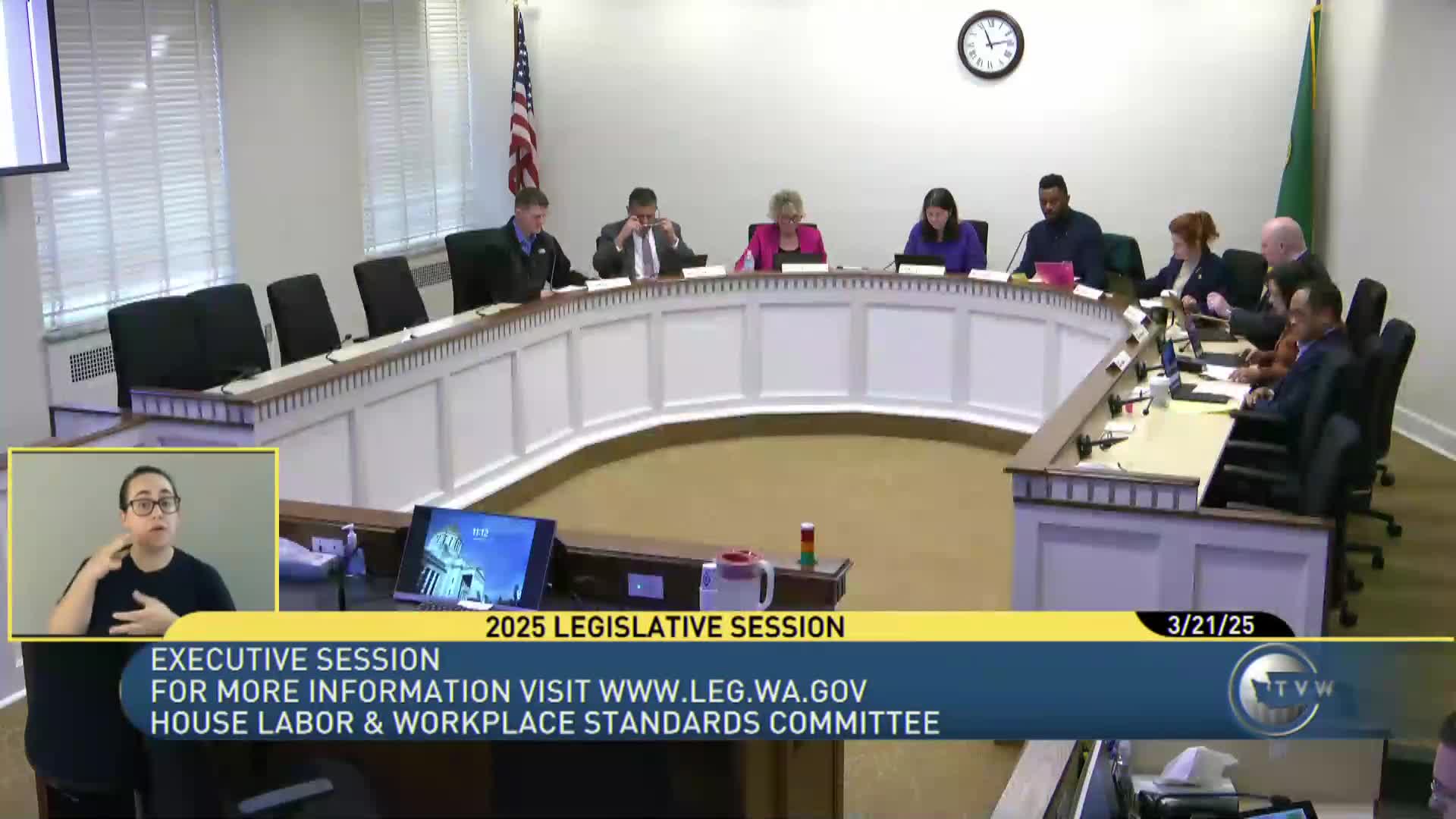Article not found
This article is no longer available. But don't worry—we've gathered other articles that discuss the same topic.

Committee hears bill to extend Domestic Violence Leave Act protections to hate-crime victims

Committee advances bill allowing up to 12 weeks of UI for striking workers after debate and failed amendments

Committee hears PERC changes; public employers raise concerns about settlement-waiver ban

